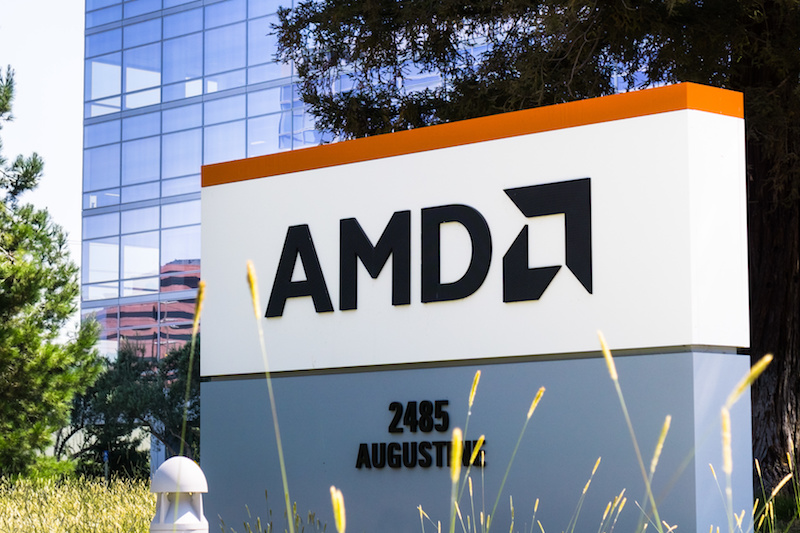Security News

AMD has confirmed that a hacker has stolen files related to some of its graphics products, but the company says it's not too concerned about the impact of the leak. A hacker who uses the online moniker "Palesa" claims to have obtained source code files related to several AMD graphics processing units, including the Navi 10 architecture, which is used in some Radeon RX 5000-series graphics cards, the upcoming Navi 21, and Arden.

AMD processors sold between 2011 and 2019 are vulnerable to two side-channel attacks that can extract kernel data and secrets, according to a new research paper. In a paper [PDF] titled, "Take A Way: Exploring the Security Implications of AMD's Cache Way Predictors," six boffins - Moritz Lipp, Vedad Hadžić, Michael Schwarz, and Daniel Gruss, Clémentine Maurice, and Arthur Perais - explain how they reverse-engineered AMD's L1D cache way predictor to expose sensitive data in memory.

AMD processors sold between 2011 and 2019 are vulnerable to two side-channel attacks that can extract kernel data and secrets, according to a new research paper. In a paper [PDF] titled, "Take A Way: Exploring the Security Implications of AMD's Cache Way Predictors," six boffins - Moritz Lipp, Vedad Hadžić, Michael Schwarz, and Daniel Gruss, Clémentine Maurice, and Arthur Perais - explain how they reverse-engineered AMD's L1D cache way predictor to expose sensitive data in memory.

AMD is seeking to downplay side-channel attacks that can leak potentially sensitive data from its processors released between 2011 and 2019. AMD this weekend said it does not believe these are "New speculation-based attacks" and did not offer any mitigations: "We are aware of a new white paper that claims potential security exploits in AMD CPUs, whereby a malicious actor could manipulate a cache-related feature to potentially transmit user data in an unintended way," said AMD in a Saturday advisory.

AMD is seeking to downplay side-channel attacks that can leak potentially sensitive data from its processors released between 2011 and 2019. AMD this weekend said it does not believe these are "New speculation-based attacks" and did not offer any mitigations: "We are aware of a new white paper that claims potential security exploits in AMD CPUs, whereby a malicious actor could manipulate a cache-related feature to potentially transmit user data in an unintended way," said AMD in a Saturday advisory.

Researchers have identified two new methods for attacking AMD processors, but they are not as dangerous as some of the previously disclosed CPU attacks. The Collide+Probe attack can also be launched remotely via a web browser without user interaction, which the experts have shown through an attack on ASLR. "We evaluated our new attack techniques in different scenarios. We established a high-speed covert channel and utilized it in a Spectre attack to leak secret data from the kernel," the researchers said.

AMD processors from as early as 2011 to 2019 carry previously undisclosed vulnerabilities that open them to two new different side-channel attacks, according to a freshly published research. Known as "Take A Way," the new potential attack vectors leverage the L1 data cache way predictor in AMD's Bulldozer microarchitecture to leak sensitive data from the processors and compromise the security by recovering the secret key used during encryption.

AMD processors from as early as 2011 to 2019 carry previously undisclosed vulnerabilities that open them to two new different side-channel attacks, according to a freshly published research. Known as "Take A Way," the new potential attack vectors leverage the L1 data cache way predictor in AMD's Bulldozer microarchitecture to leak sensitive data from the processors and compromise the security by recovering the secret key used during encryption.

Security vulnerabilities in some AMD ATI Radeon graphics cards could allow attackers to remotely execute code or cause a denial of service condition, researchers from Cisco Talos have warned. A total of four security flaws were disclosed, all of them impacting the AMD ATIDXX64.

IGEL, provider of the next-gen edge OS for cloud workspaces, announced that it has integrated the AMD Secure Processor on IGEL UD7 endpoints, effectively creating a dedicated ‘chain of trust’...